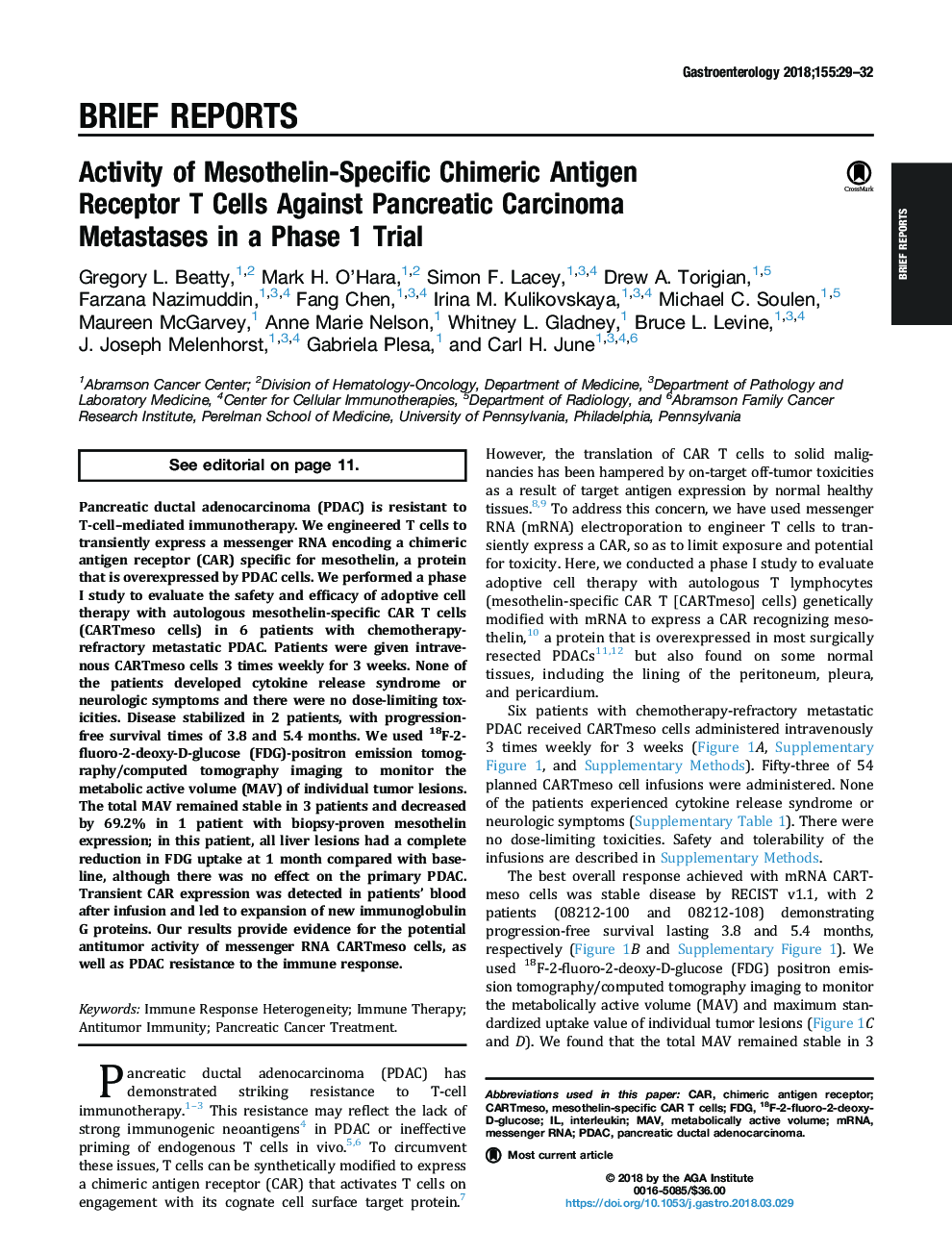| Article ID | Journal | Published Year | Pages | File Type |
|---|---|---|---|---|
| 8726335 | Gastroenterology | 2018 | 4 Pages |
Abstract
Pancreatic ductal adenocarcinoma (PDAC) is resistant to T-cell-mediated immunotherapy. We engineered T cells to transiently express a messenger RNA encoding a chimeric antigen receptor (CAR) specific for mesothelin, a protein that is overexpressed by PDAC cells. We performed a phase I study to evaluate the safety and efficacy of adoptive cell therapy with autologous mesothelin-specific CAR T cells (CARTmeso cells) in 6 patients with chemotherapy-refractory metastatic PDAC. Patients were given intravenous CARTmeso cells 3 times weekly for 3 weeks. None of the patients developed cytokine release syndrome or neurologic symptoms and there were no dose-limiting toxicities. Disease stabilized in 2 patients, with progression-free survival times of 3.8 and 5.4 months. We used 18F-2-fluoro-2-deoxy-D-glucose (FDG)-positron emission tomography/computed tomography imaging to monitor the metabolic active volume (MAV) of individual tumor lesions. The total MAV remained stable in 3 patients and decreased by 69.2% in 1 patient with biopsy-proven mesothelin expression; in this patient, all liver lesions had a complete reduction in FDG uptake at 1 month compared with baseline, although there was no effect on the primary PDAC. Transient CAR expression was detected in patients' blood after infusion and led to expansion of new immunoglobulin G proteins. Our results provide evidence for the potential antitumor activity of messenger RNA CARTmeso cells, as well as PDAC resistance to the immune response.
Keywords
Related Topics
Health Sciences
Medicine and Dentistry
Gastroenterology
Authors
Gregory L. Beatty, Mark H. O'Hara, Simon F. Lacey, Drew A. Torigian, Farzana Nazimuddin, Fang Chen, Irina M. Kulikovskaya, Michael C. Soulen, Maureen McGarvey, Anne Marie Nelson, Whitney L. Gladney, Bruce L. Levine, J. Joseph Melenhorst,
